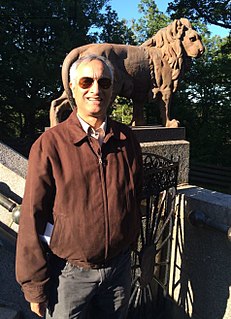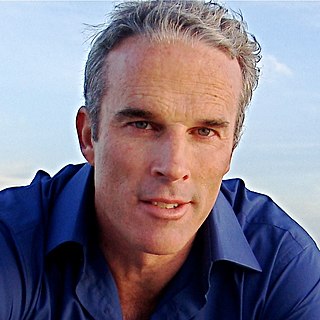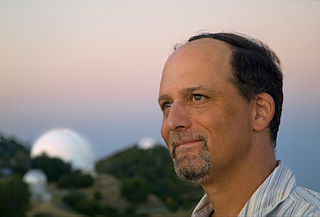A Quote by Miriam Defensor-Santiago
Planet Earth is estimated to have a lifetime of nine billion years. And we're right smack in the middle of our lifetime. We've been in the universe for 4.5 billion years. So, that should mean something. We should sort of take a look at where we came from and where we are going.
Related Quotes
Our planet has been around only for four and a half billion years. Let's imagine a planet that has life on it such as life is on Earth and it's seven billion years old. Let's say that planet evolved intelligence. Well, that intelligence would be way more advanced than what we call intelligence here on Earth. How long has intelligence been around on Earth as we've come to define it?
I remind myself that the universe is 15 billion years old, and I'm only 46 years old, so my perspective is sort of limited and fear-based and skewed. So I sort of turn things over to whatever you want to call it - whether it's God, or the universe or the spirit of the universe - and I just sort of turn things over to God and hope that this spirit that has been around for 15 billion years will have a better understanding of how things should be than I do.
There is nothing wrong with the planet. The planet is fine ... been here 4 1/2 billion years. We've been here, what, a 100,000 years, maybe 200,000. And we've only been engaged in heavy industry a little over 200 years. 200 years versus 4 1/2 billion. And we have the conceit to think that somehow we're a threat? The planet isn't going away. We are.
If we could magically transport ourselves back to the young Earth, when it was only a billion years old or two billion years old or three billion years old or four billion years old, we wouldn't be able to survive. We would have a hard time surviving if we were transported to the time when dinosaurs were around.
When we look out into space, we're looking back in time; the light from a galaxy a billion light-years away, for instance, will take a billion years to reach us. It's an amazing thing. The history is there for us to see. It's not mushed up like the geologic record of Earth. You can just see it exactly as it was.
The planet earth has a life span of eight billion years, give or take a few million. People have been around for approximately forty thousand years-a virtual blink in the cosmos. It is sad that we as a species are ravaging the natural world so fast that we are jeopardizing our survival. If we wipe ourselves out, it would be the height of folly, but the earth will survive even us. It will eventually restore itself. It might take a few thousand years, and it won't be just as it was before, but its life is stronger than death.
I tell my students, with a feeling of pride that I hope they will share, that the carbon, nitrogen, and oxygen that make up ninety-nine per cent of our living substance were cooked in the deep interiors of earlier generations of dying stars. Gathered up from the ends of the universe, over billions of years, eventually they came to form, in part, the substance of our sun, its planets, and ourselves. Three billion years ago, life arose upon the earth. It is the only life in the solar system.

































